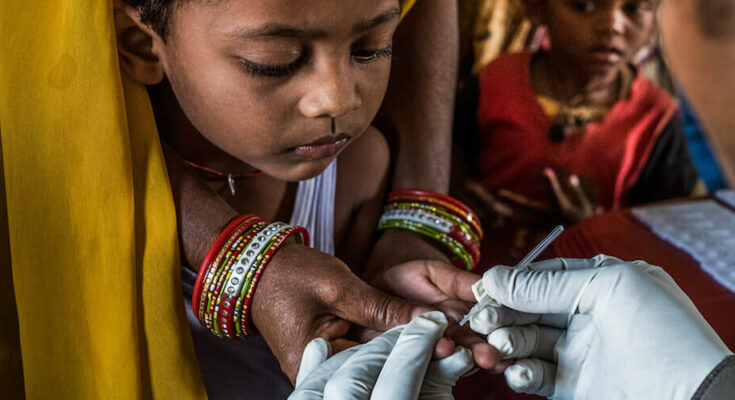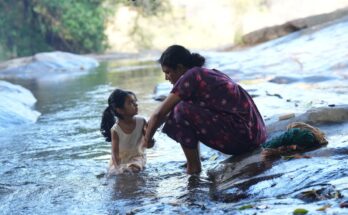Malaria No More Launches a Virtual Centre of Excellence, Employing Artificial Intelligence and Climate
Malaria No More Launches a Virtual Centre of Excellence, Employing Artificial Intelligence and Climate Data to Advance Global Malaria Strategies
New Delhi, 7th February 2022: In a bid to address malaria in the light of climate change and weather volatility, Malaria No More, an international NGO announced the launch of a new global institute – the Institute for Mala ria and Climate Solutions (IMACS) – in partnership with the Crown Prince Court of Abu Dhabi (CPC) and it is Re aching the Last Mile (RLM) initiative.
Malaria is one of oldest and deadliest diseases and is among the many challenges we will soon face at the interse ction of health and climate change. Increasing temperatures, extreme weather events, and changing rainfall pat terns are complicating our global efforts to eradicate malaria: climate change is putting more people at risk of all diseases carried by mosquitoes and other insect “vectors.”
IMACS, a virtual center of excellence, has been established to advance multidisciplinary approaches to malaria strategies informed by Artificial Intelligence (AI) and climate data while supporting their adoption by malaria control programs worldwide. The institute is a part of the Forecasting Healthy Futures (FHF) initiative, a consor tium convened by Malaria No More and the Crown Prince Court of Abu Dhabi’s Reaching the Last Mile in 2020 to drive innovation and investment in global health solutions in the context of climate change. In partner ship wi th the Government of India and the Government of Odisha, FHF has designed and implemented a highly sophi sticated Malaria Prediction & Planning Toolkit, which IMACS will work to replicate in other malaria-aff ected countries around the world.
The Mohamed Bin Zayed University for Artificial Intelligence has also joined as a new technical partner to build on the pioneering work that has been achieved to date. IMACS will advance innovations in data and technology-informed malaria programs, foster collaboration and knowledge sharing among an international network of exp erts and convene an annual scientific conference to showcase the most promising novel approaches to building climate resilience in health systems. It will also actively support the translation of those approaches to practical and applicable solutions, by deploying multidisciplinary technical assistance to malaria-endemic countries.
Dr. Kaushik Sarkar, Director-in-Charge of Malaria No More India, was appointed as IMACS’ inaugural Director. Commenting on the launch, Dr. Sarkar, said, “The Institute for Malaria and Climate Solutio ns serves as a robust opp ortunity to address the climate inequalities and injustices impeding Global Health ambitions such as malaria erad ication. Through this virtual center of excellence, we hope to pioneer the effort of climate-proofing global health solutio ns and paving an innovative way of combatting climate-sensitive diseases through collective wisdom, state-of-art te chno logies and interdisciplinary approaches.”
The Institute serves as the secretariat for a growing community of practice and will be guided by a Scientific Ad visory Board of international experts in climate sciences, infectious disease, entomology, and AI. Its staff and co nsultants are based throughout the malaria-affected world, and work in partnership with Ministries of Health everywhere in support of malaria elimination. Dr. William Pan, Associate Professor of Global Environmental Health at Duke University, was named as the Chair of IMACS’ Science Advisory Board.
About Malaria No More India
Malaria No More (MNM) envisions a world where no one dies from a mosquito bite. To support India’s historic drive to eliminate malaria by 2030, MNM India is working with partners at the national level to mobilize the necessary political will, funding, and innovation. MNM India’s Strategic Support Unit also works at the state level, providing technical management support to the malaria programme in Odisha, once India’s state with the highest burden of malaria.
About Forecasting Health Futures
Forecasting Healthy Futures is a growing coalition of global health, technology, and public sector partners coming together to bring greater attention to the inequities at the intersection of global health and climate change, and to promote proactive, resilient solutions that use integrated data and artificial intelligence to anticipate and mitigate the worst health effects of a warming planet. Forecasting Health Futures’ partners include the Crown Prince Court of Abu Dhabi/Reaching the Last Mile, Mohamed Bin Zayed University of Artificial Intelligence, PATH, the Tableau Foundation, the Weather Company and The Institute for Health Metrics and Evaluation (IHME).





